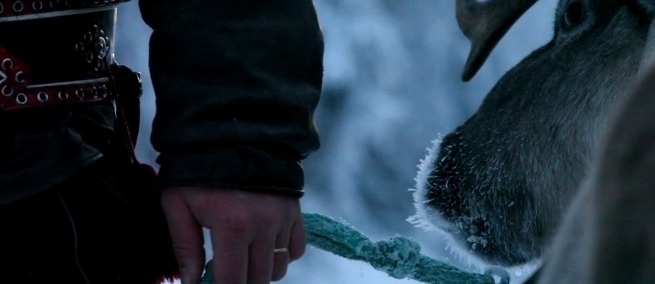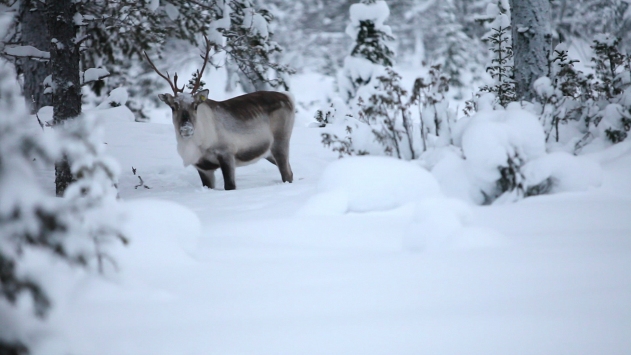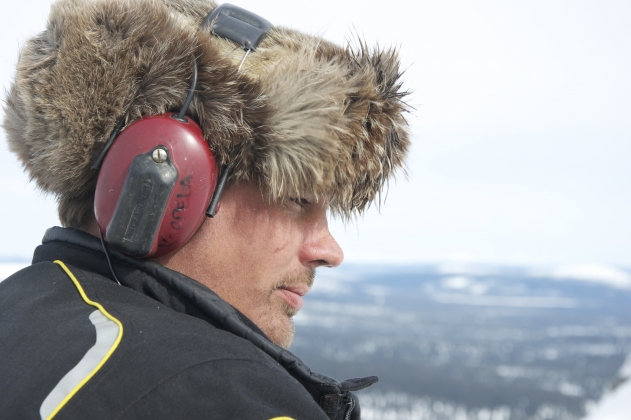
Jessica Oreck’s tender documentary AATSINKI: THE STORY OF ARCTIC COWBOYS follows a cooperative of reindeer herders and their brutal work. Oreck’s films fascinate with their close observation of far out cultures that interact with the natural world. In her own words, she makes films about, what she has termed, “ethnobiology, or the way cultures look at the natural world.” Her first film, BEETLE QUEEN CONQUER TOKYO (2009), is about the Japanese culture’s obsession with beetles.
AATSINKI was shot in 2013 in Lapland, in northern Finland–just over 20 miles north of the Arctic Circle. Reindeer are central to the economy, lifestyle, diet, and culture of the people living there. Oreck filmed AATSINKI over the course of a year, so as the seasons change reindeer are alternately herded, slaughtered, or harnessed onto sleighs for tourists. Santa Claus really arrives on a reindeer in this town. The documentary follows the last group of reindeer herders in Finland that allows their reindeer to have free range.

In November as part of the initiative Science on Screen, the Midwest Theater in Nebraska showed AATSINKI with three live female reindeers on stage and Oreck in person. Rangeland ecologist Walter Schacht spoke about the parallels between reindeer herding and cattle ranching in Nebraska. In Finland, the grazing land is dominated by forests he said, whereas Nebraska mostly has grasslands. Cattle rancher Tom Sanders noted that “the biggest difference [between cattle ranching and the reindeer herders] would be the extensiveness of how they operate compared to the intensiveness of how we operate. He’s out there on the snowmobile looking for the reindeer to find them, and we’re taking the feed to our animals in the winter, I also appreciate the fact that [the reindeer herders are] letting mother nature work with what they’re doing too.”

Jessica Oreck’s production company, Myriapod Productions, has an online educational resource that accompanies AATSINKI. The film itself, which premiered at the Tribeca Film Festival, is available to watch on Amazon or iTunes. Oreck is now working on a new film, ONE MAN DIES A MILLION TIMES, based on the true story of seed scientists who died protecting the Vavilov Seed Bank during the Siege of Leningrad. The film received support from the Tribeca Film Institute-Sloan Filmmaker Fund in 2017. For more, read Science & Film’s interview with Oreck about the project.
FILMMAKERS
PARTNERS
TOPICS